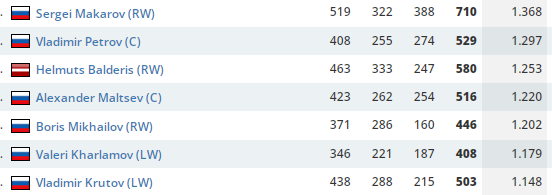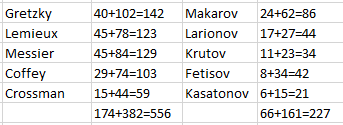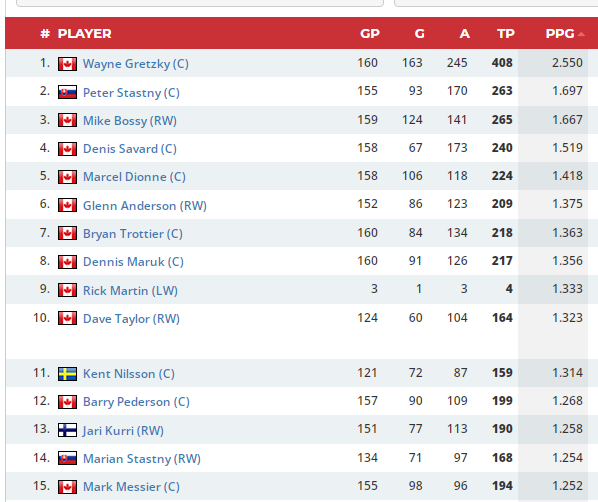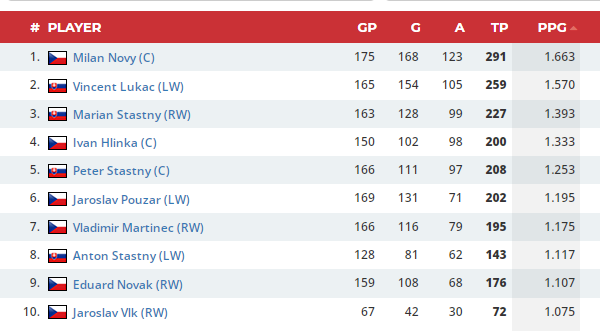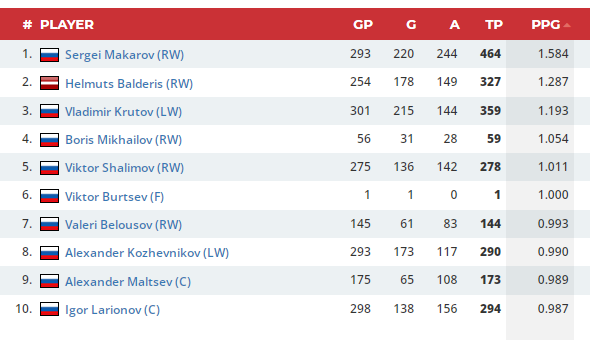TheMoreYouKnow
Registered User
How about CSKA decisively winning over mid-80s Oilers and other NHL clubs? Those teams trained and played together year round.
Well for one, those were exhibitions, but even ignoring that, CSKA had most of the Soviet team's best players. Of course, Dynamo had some very good players, but CSKA got the best. Meanwhile even in the mid 80s - the Oilers had how many guys who would be on a 'best of' Canada team? Gretzky, Messier, Coffey, maybe Anderson and Fuhr? If the Oilers also had had Lemieux, Hawerchuk, Bourque, Yzerman, Murphy and MacInnis the comparison might be apt, but nah it's perfectly possible that CSKA was better in relationship to NHL clubs than the Soviet Union was in relation to Canada. Non-Oilers added more to Team Canada than non-CSKA could add to the Soviet team.
The Soviet hockey system was built around the goal of putting the best Soviet Union team on the ice. I spent my childhood in the communist system, and played sports for a Dynamo club then, my dad did too and also was a coach, so I know how it worked. The Western teams never understood the seriousness and focus of the Soviet bloc teams because in the West it was more about making money and being famous.

